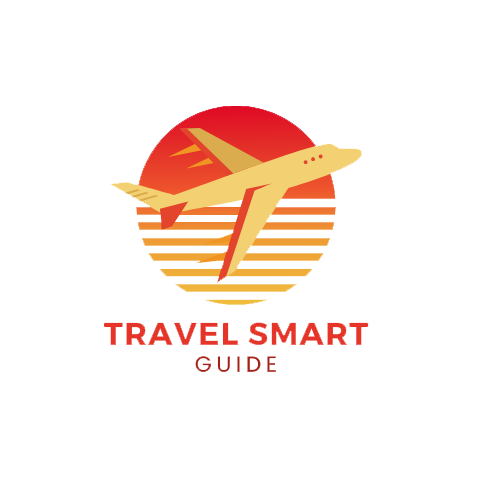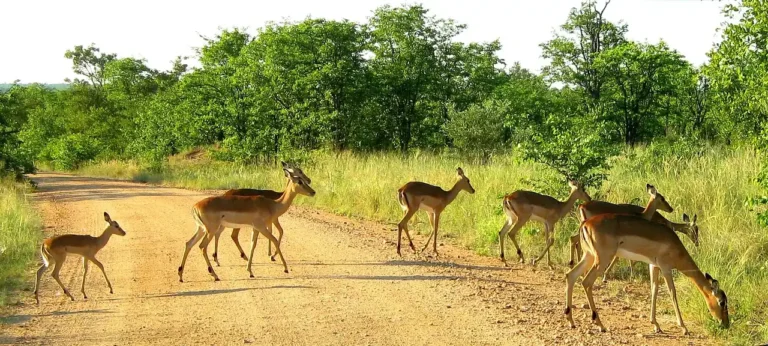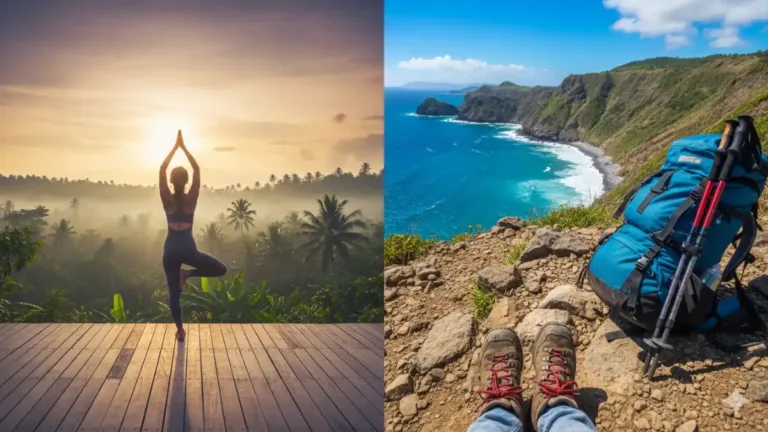
Kruger National Park, one of Africa’s largest and most iconic wildlife reserves, is a must-visit destination for travelers seeking an authentic safari experience. Spanning nearly 2 million hectares in northeastern South Africa, the park offers an unparalleled opportunity to witness the “Big Five” (lion, elephant, buffalo, leopard, and rhinoceros) in their natural habitat. Whether you’re an adventure seeker, a nature lover, orthe Best Safari Tour in Kruger National Park is the perfect destination for immersing yourself in Africa’s rich wildlife and diverse landscapes.
Renowned for its exceptional biodiversity, Kruger is home to over 147 species of mammals, 507 bird species, and an array of plant life. The park’s well-maintained road network, excellent accommodation options, and numerous guided safari tours make it accessible to both self-drive tourists and those seeking guided experiences. From luxurious private game lodges to budget-friendly campsites, there’s something for every traveler at Kruger.
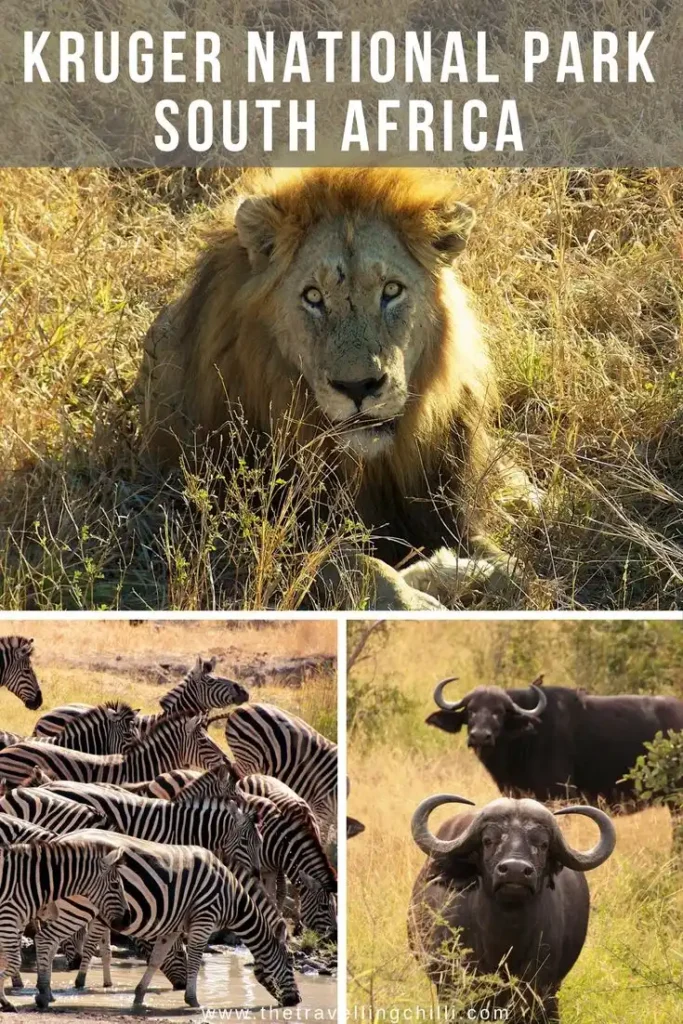
Table of Contents:
- Introduction
- History and Overview of Kruger National Park
- The Wildlife Experience
- Big Five Safari
- Bird Watching
- Accommodation in Kruger National Park
- Luxury Lodges
- Budget-Friendly Rest Camps
- Self-Drive Safaris vs. Guided Tours
- Activities and Adventures at Kruger
- Game Drives
- Walking Safaris
- Night Safaris
- Best Time to Visit Kruger National Park
- Pros and Cons of Visiting Kruger National Park
- FAQs
- Why Kruger National Park Should Be Your Next Safari Destination
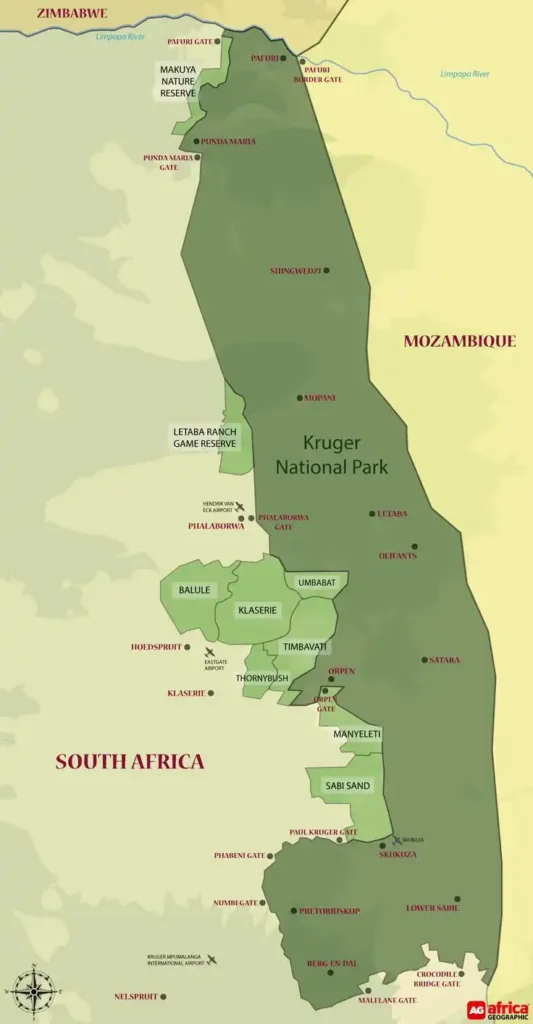
1. Introduction about Safari Tour in Kruger National Park
Kruger National Park is a premier destination for anyone looking to experience the beauty and thrill of an African safari. Located in the Limpopo and Mpumalanga provinces, the park is home to a remarkable range of wildlife, including some of the most iconic animals on the planet. For visitors, Kruger provides the perfect mix of adventure and comfort, with its well-developed infrastructure allowing travelers to explore the vast wilderness while enjoying comfortable accommodations and guided activities.
Whether you’re planning a self-drive safari or booking a stay in one of the park’s luxury lodges, Kruger has something for everyone. The park’s diversity of ecosystems—from open savannahs to dense woodlands—ensures a unique experience every time you visit. Let’s explore the best of what Kruger National Park has to offer.
2. History and Overview of Kruger National Park
Established in 1926, Kruger National Park is one of the oldest and largest national parks in the world. It was founded by Paul Kruger, the then-President of the South African Republic, who recognized the need to protect the region’s wildlife from over-hunting and encroachment. Today, Kruger is internationally recognized as one of the most important conservation areas in Africa.
The park stretches for approximately 350 kilometers from north to south and 60 kilometers from east to west. It borders Mozambique and Zimbabwe, creating a transfrontier park that encourages the free movement of animals between the countries. With its vast size and diverse landscapes, Kruger offers a truly immersive experience into the wild heart of Africa.
3. The Wildlife Experience
Kruger National Park is renowned for its Big Five sightings, but its wildlife diversity extends far beyond these famous animals. Visitors can expect to see giraffes, zebras, hippos, crocodiles, and various species of antelope. The park’s varying landscapes, from open plains to riverine forests, offer numerous opportunities to spot wildlife at all times of the day.
Big Five Safari
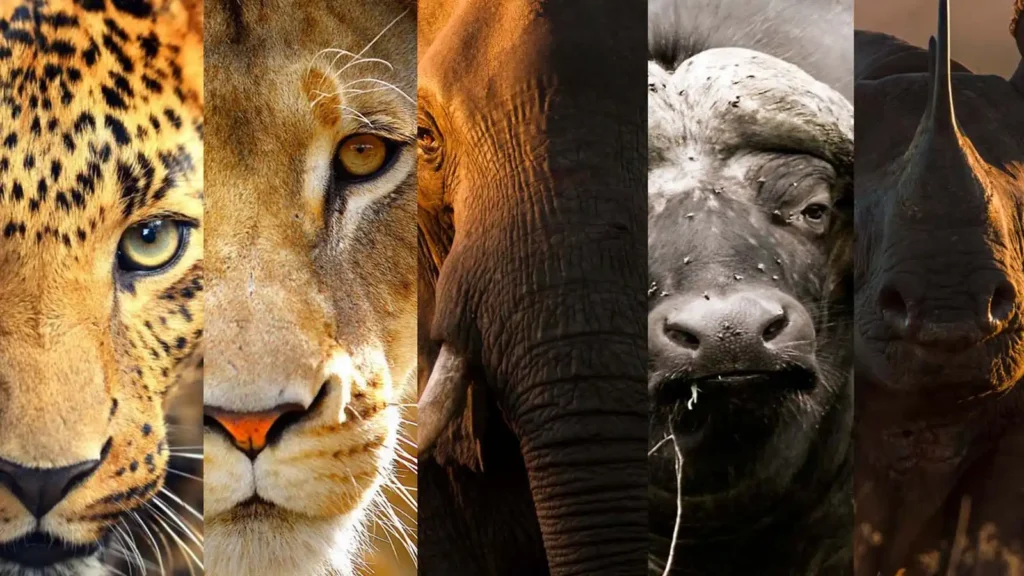
The Big Five—lion, leopard, elephant, buffalo, and rhinoceros—are a major draw for tourists, and Kruger provides one of the best chances in Africa to see them. Early morning and late afternoon game drives are ideal times to catch these animals in action, whether it’s a pride of lions lounging in the sun or elephants crossing the road.
Bird Watching
Kruger is a birdwatcher’s paradise, boasting over 500 species of birds. Visitors can spot everything from majestic eagles to colorful bee-eaters and lilac-breasted rollers. For serious birding enthusiasts, the summer months (October to March) are the best time to visit, as migratory birds arrive in the park.
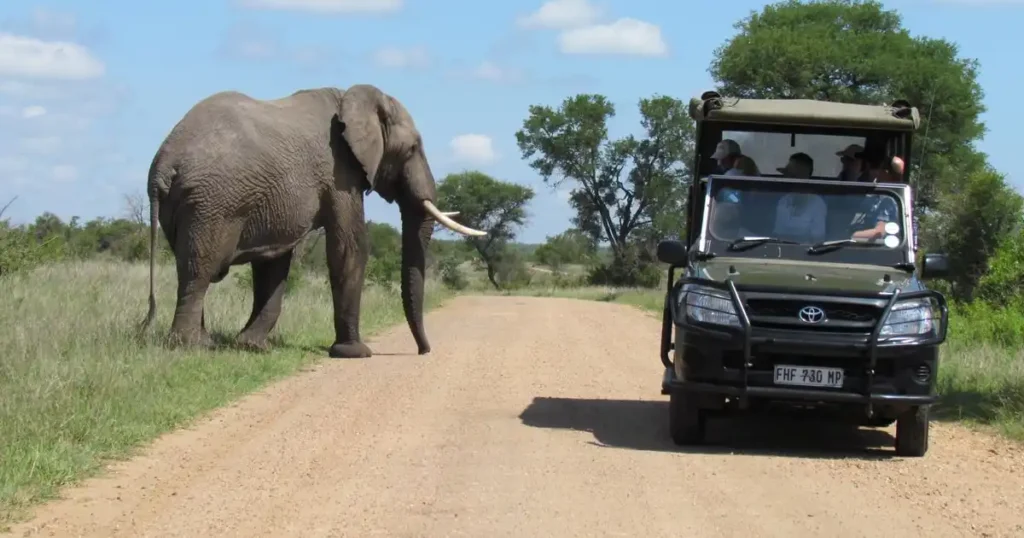
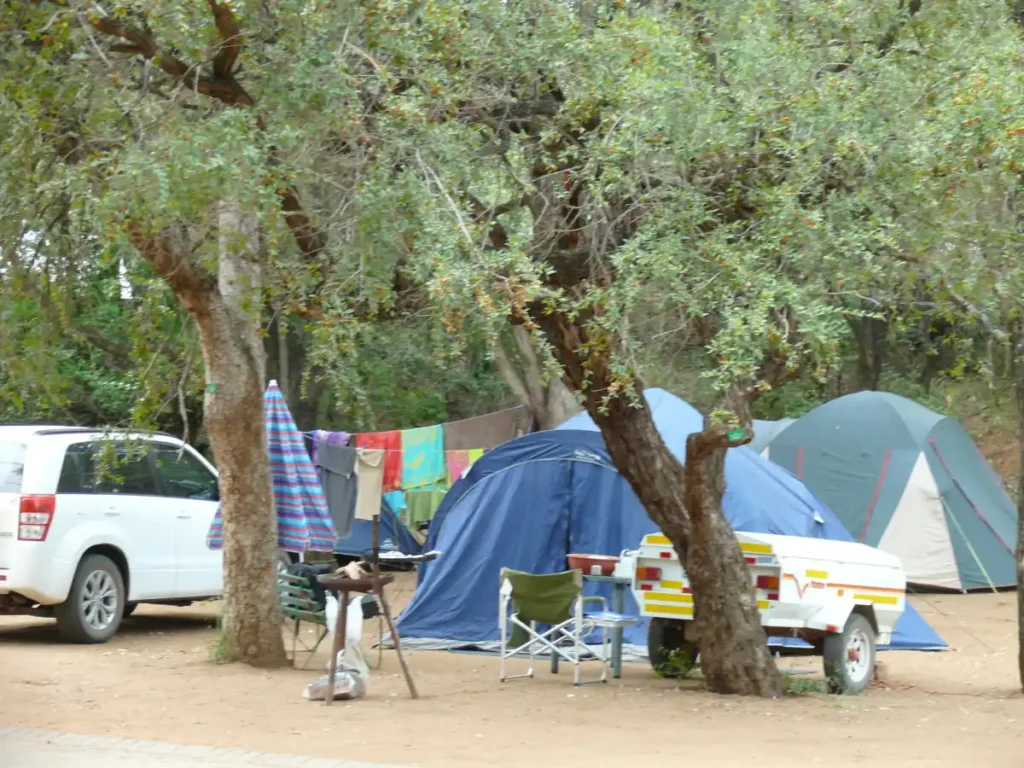
4. Accommodation in Kruger National Park
Kruger National Park is one of Africa’s largest and most renowned game reserves, offering visitors the chance to experience wildlife up close while enjoying a range of accommodations that cater to different tastes and budgets. From luxury lodges to more rustic bush camps, there is something for everyone who wants to immerse themselves in the park’s incredible natural beauty. Here are four standout accommodations in Kruger National Park:
Whether you’re seeking the ultimate in luxury, a family-friendly option, or a unique boutique experience, Kruger National Park has an accommodation to match your preferences. Each of these lodges offers something special, from intimate wildlife encounters to luxurious comforts, ensuring that your stay in one of the world’s premier wildlife destinations is unforgettable.
From the elegant Singita Lebombo Lodge and the sustainable luxury of Sabi Sabi Earth Lodge, to the family-friendly Jock Safari Lodge and the unique Kruger Shalati, these accommodations are all set in the heart of the African wilderness, ensuring guests can enjoy the beauty and excitement of Kruger National Park with unmatched style and comfort.
Budget-Friendly Rest Camps
For travelers on a budget, Kruger offers a variety of rest camps, which provide affordable yet comfortable accommodations within the park itself. These camps offer basic amenities like self-catering units, bungalows, and campsites, with communal areas for cooking and socializing. Popular rest camps include Skukuza, Lower Sabie, and Satara.
Highlights:
- Affordable accommodations with great access to wildlife
- Self-catering facilities for budget-conscious travelers
- Located within the park for easy access to game viewing
5. Self-Drive Safaris vs. Guided Tours
Visitors to Kruger National Park can choose between self-drive safaris and guided tours, each offering its own advantages.
Self-Drive Safaris
Self-drive safaris give visitors the freedom to explore the park at their own pace. The park’s well-maintained roads make it easy for even first-time safari-goers to navigate. With maps and GPS systems available, self-drivers can plan their routes and stop for wildlife sightings as they please.
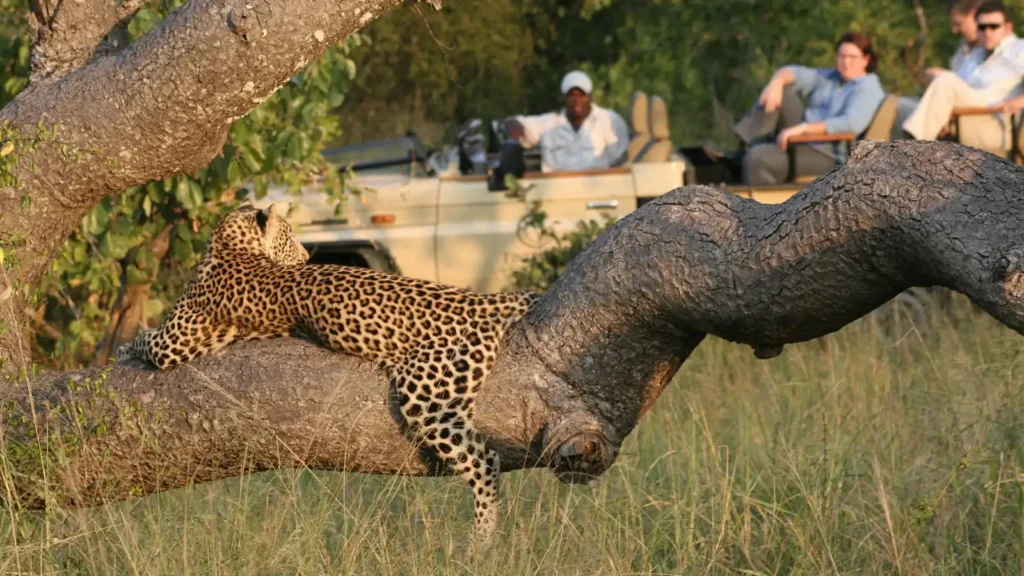
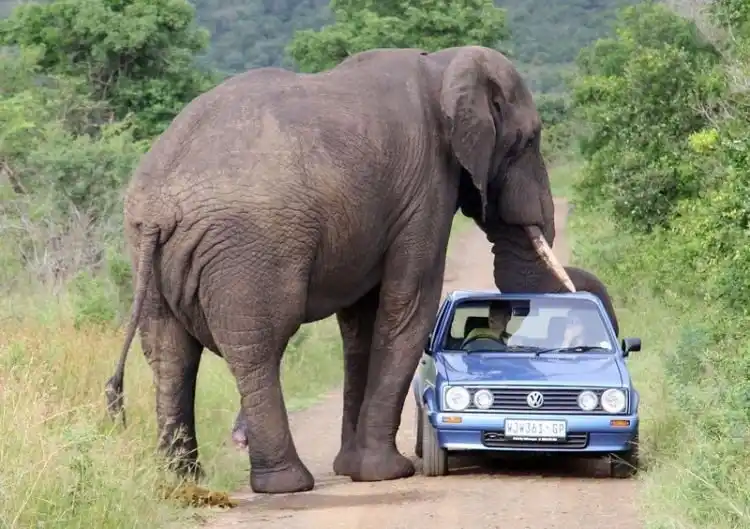
Highlights:
- Flexibility to explore at your own pace
- Ideal for those who enjoy independence
- More affordable option for travelers
Guided Tours
For those who prefer a more structured experience, guided tours are an excellent option. Led by knowledgeable guides, these tours offer valuable insights into the park’s wildlife and ecosystems. Guided tours also increase the chances of spotting elusive animals like leopards, thanks to the guides’ expert tracking skills.
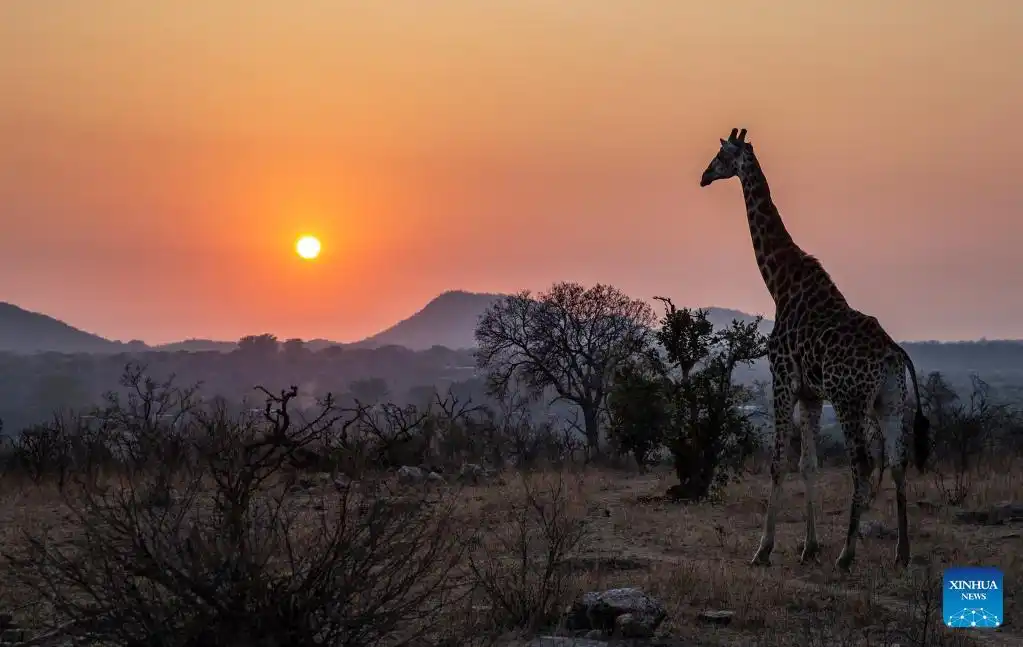
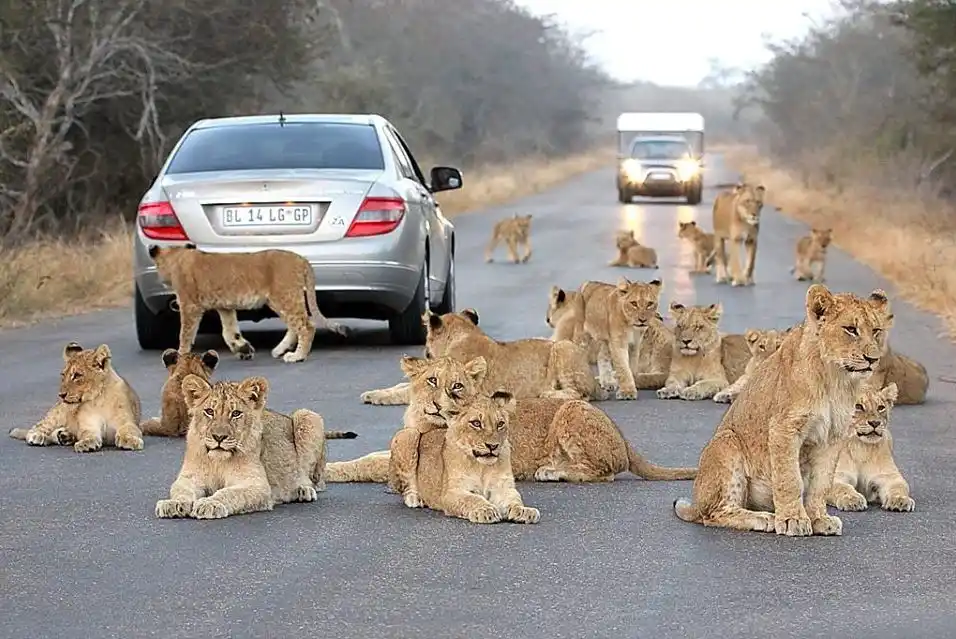
Highlights:
- Expert guides increase wildlife spotting chances
- Convenient for first-time safari-goers
- Often includes meals and additional perks
6. Activities and Adventures at Kruger
Beyond game drives, Kruger National Park offers a range of activities that allow visitors to fully immerse themselves in the African wilderness.
Game Drives
The most popular activity at Kruger is the traditional game drive, where visitors can spot wildlife from the safety of their vehicle. Early morning and sunset drives are the best times to see the park’s most active animals.
Walking Safaris
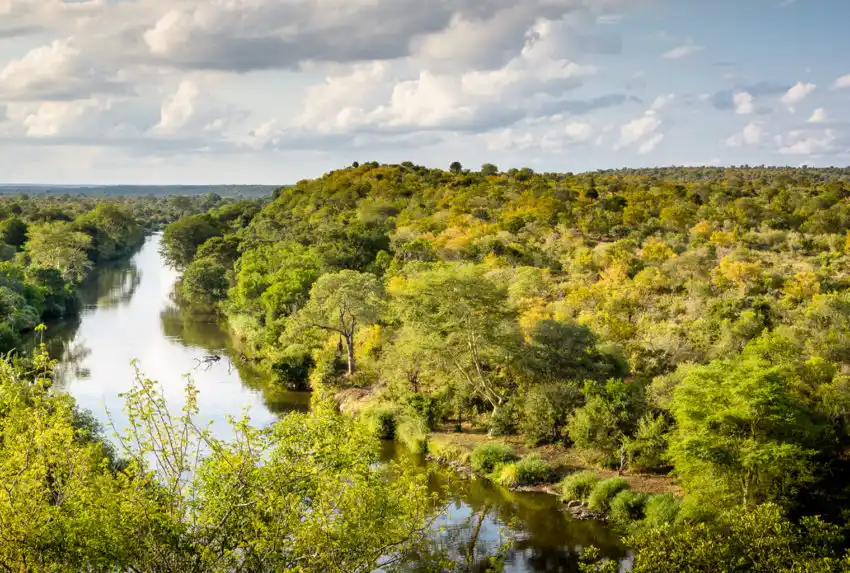
For those seeking a more intimate experience with nature, walking safaris are a thrilling way to explore the bush. Led by armed guides, these hikes offer the chance to see smaller creatures, plants, and insects that are often missed during game drives.
Night Safaris
Kruger also offers night safaris, where visitors can witness the park’s nocturnal creatures, including hyenas, owls, and leopards. Equipped with spotlights, guides lead guests through the darkness in search of the park’s elusive night-dwellers.

7. Best Time to Visit Kruger National Park
The best time to visit Kruger depends on the type of experience you’re seeking. The dry winter months (May to September) are ideal for game viewing, as animals congregate around water sources and the vegetation is less dense, making wildlife easier to spot. The wet summer season (October to April) is the best time for bird watching and seeing newborn animals, though game viewing can be more challenging due to thicker vegetation.
8. Pros and Cons of Visiting Kruger National Park
Pros:
- One of the best places in Africa to see the Big Five
- Wide variety of accommodation options to suit all budgets
- Well-maintained roads for easy self-drive safaris
- Rich biodiversity and breathtaking landscapes
Cons:
- Some areas of the park can become crowded during peak season
- Limited cellphone reception and internet in certain areas
- High temperatures during the summer months
9. FAQs
1. Is Kruger National Park family-friendly?
Yes, Kruger offers family-friendly accommodations and activities, including self-drive safaris that are great for children.
2. Can I visit Kruger National Park on a budget?
Yes, Kruger has a range of budget-friendly accommodations, including rest camps and campsites that allow travelers to experience the park without breaking the bank.
3. What should I pack for a safari in Kruger?
Pack lightweight clothing for the day, warm layers for early mornings and evenings, sunscreen, insect repellent, a hat, binoculars, and a camera.
10. Why Kruger National Park Should Be Your Next Safari Destination
With its incredible biodiversity, comfortable accommodations, and ease of access, Kruger National Park is a dream destination for any wildlife enthusiast. Whether you’re watching lions from the comfort of a luxury lodge or embarking on a self-drive adventure in search of elephants and rhinos, the park offers an unforgettable experience for all types of travelers.
Kruger’s ability to cater to a wide range of budgets and preferences, coupled with its stunning natural beauty and wealth of activities, makes it one of the most versatile and exciting safari destinations in the world. Don’t miss the chance to experience this extraordinary park for yourself.
